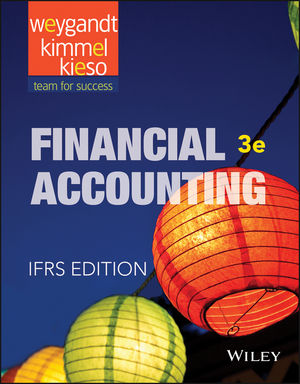The discipline of accounting continues to exist in the world for over centuries, and it has continuously evolved and incorporated new ideas. The study of accounting means the interpretation of financial records from an organization over a period. The specialization of accounting, found under studies of business and commerce, remain covered in the syllabus of many curricula.
The education provided can be found at colleges and universities while in individual cases, high school students also study the course. An approximate value of accounting content, exactly thirty percent, is attained through study while the rest is through field studies and tutors. The private studies for financial accounting help homework occur through books that provide basic concepts of accounting.
The financial accounting basis books.
Before you decide upon to purchase a book to widen your knowledge of financial accounting, the book has to have precise specifications;
• The financial accounting book should come from professionals who are certified to be accountants.
• The book should include content relating to accounting assignment help, concepts and interpretations.
• The accounting book in use should meet the international standards and qualifications set for accounting books.
Moreover, the financial accounting books are required to be simple and exist under copyrights of the content owners. The type of book chosen should have authors who are certified to understand the financial accounting tools.
Sample Financial accounting basis books.
1.Financial Accounting, written by Jerry J. Weygandt, Paul D, and others 
The best website to search for soft copy books on accounting is known to be Goodreads that has thousands of content books. The book, Financial Accounting, written by Jerry J. Weygandt, Paul D, and other authors is elaborate on the topic. The reason as to why the book is perceived to serve its purpose through the inclusion Financial Reporting Standards in the outline.
The book is relatively short with pages that sum up to approximately one thousand pages of fancy accounting techniques. The number of mathematical formulas in the book is small, and this layout gives you an opportunity to understand the more written content. Of fundamental importance, the book has accounting assignments regularly practiced.

The second example of the book on accounting basis is called Accounting for Dummies with the name not suggesting the limited mentality of the book owners. The book in reference constitutes the authors Joh A. Tracy, and it emphasizes on the basic financial accounting concepts and tries to make the readers understand accounting practices.
The Accounting dummies book has a method of checking and updating the financial book for the business men who want to keep their businesses going.
The author of the book has a vast experience in the finance sector through his role as a professional public accountant and as a lecturer for the discipline. The accounting basis for the book is a modern view of the concepts of accounting and a practical approach. The important positive note and feature of the dummies book are to educate the general public using means that are less complex.
3. Accounting for Value by Stephen H. Penman
Stephen H. Penman provides an excellent resources material for accounting assignments through his book, Accounting for Value. The book covers extensively evaluation and accounting concepts of the equity investments using ideologies such the common-sense principle.
Penman uses his experience as an investor and accountant to prescribe intelligent accounting solutions.
Conclusion
There are many books available outside the classroom setting aimed at explaining the accounting basis to everyone in simple texts. The remarkable achievement that will cement the understanding of the books is through continuous practice of the concepts in the book. The constant revision of the accounting basis concepts and assignments, all help to check an individual’s level of knowledge gained.








